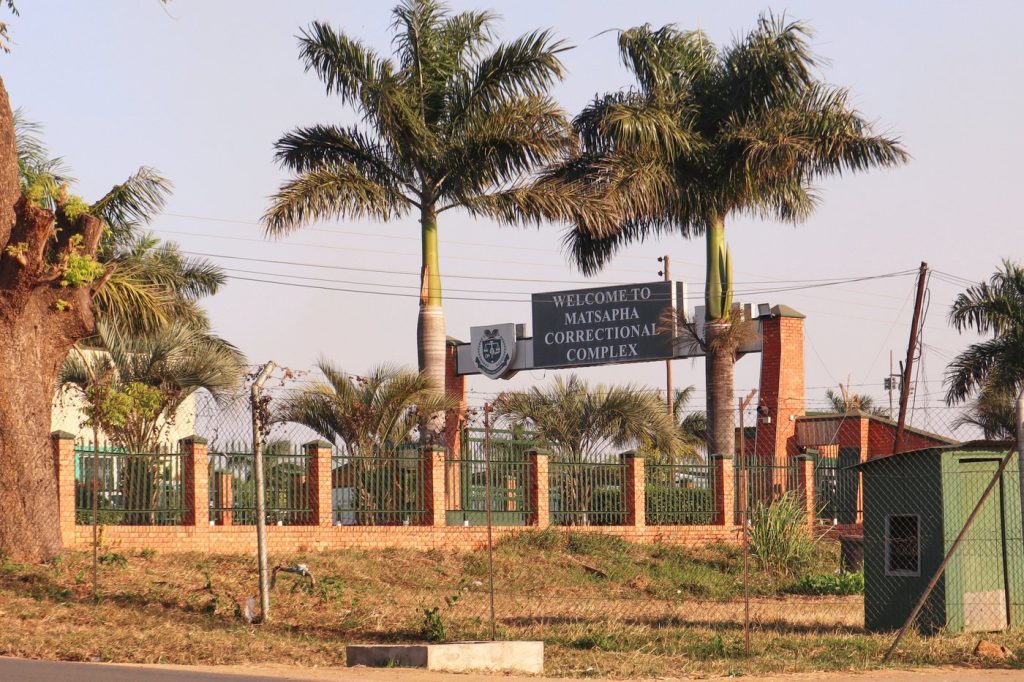CAPE TOWN, South Africa (AP) – Roberto Mosquera del Peral, a Cuban man deported by the United States to Eswatini, is currently on a hunger strike at a maximum-security prison, having been held for over three months without charge or access to legal counsel. This situation arose under the Trump administration's controversial third-country deportation program, according to his U.S.-based lawyer.
In mid-July, Mosquera was one of five men sent to the small southern African kingdom as part of the expanding U.S. deportation program, which has faced significant criticism from rights groups and legal advocates. They argue that deportees like Mosquera are being denied due process and are at risk of human rights abuses. Mosquera's attorney, Alma David, expressed serious concerns about his health during the hunger strike, stating, “My client is arbitrarily detained, and now his life is on the line.” David urged the Eswatini Correctional Services to provide updates on Mosquera’s condition and ensure he receives adequate medical attention. She further demanded access to legal counsel for her client while in Eswatini.
Mosquera was part of a group that included men from Jamaica, Laos, Vietnam, and Yemen, who were deported to Eswatini—an absolute monarchy criticized for its human rights record. The Jamaican deportee was repatriated to his home country last month, but the remaining individuals have been held in prison for more than three months. An Eswatini-based lawyer has initiated legal action against the government to secure access to legal representation for these deportees.
Civic organizations in Eswatini have also taken legal action to challenge the validity of detaining foreign nationals without charges. While the Eswatini government has indicated intentions to repatriate these men, no specific timeline has been provided for their return. The U.S. government aims to deport Kilmar Abrego Garcia to Eswatini under the same program.
U.S. authorities identified these deportees as individuals convicted of serious crimes, including murder and rape, and acknowledged that they were living in the U.S. illegally. The Department of Homeland Security stated that Mosquera had been convicted of murder and was associated with a gang. His legal team contends that all the men had completed their criminal sentences in the United States but are now unlawfully detained in Eswatini without any formal charges against them.
The Department of Homeland Security has presented the third-country deportation initiative as a strategy to expel “illegal aliens” from America, framing it as a choice between self-deportation and being sent to nations like Eswatini. Since July, the Trump administration has deported individuals to at least three other African countries—South Sudan, Rwanda, and Ghana—under largely undisclosed agreements. Although an agreement with Uganda exists, there have been no announcements about deportations there yet.
The international rights organization Human Rights Watch has reported that the U.S. has offered financial incentives to African nations for accepting deportees. Documents indicate that Eswatini received $5.1 million to accept up to 160 deportees, while Rwanda was granted $7.5 million for up to 250 deportees.
Recent developments show that ten additional deportees were sent to Eswatini this month, believed to be held in the same Matsapha Correctional Complex prison near Mbabane. These new deportees are reportedly from diverse countries, including Vietnam, Cambodia, the Philippines, Cuba, Chad, Ethiopia, and Congo. Lawyers have raised alarms over the lack of communication and legal access for their clients, emphasizing that phone calls to U.S.-based legal representatives are monitored. They worry about the overall conditions in which their clients are being detained.
In conclusion, Alma David has reiterated the urgency of permitting legal access for Mosquera and the other detainees. She stated, “The fact that my client has been driven to such drastic action highlights that he and the other 13 men must be released from prison. The governments of the United States and Eswatini must take responsibility for the real human consequences of their deal.”











